WISP – Written Information Security Program Guide
The written information security program, otherwise referred to as WISP, is a vital data governance element. WISPs are a requirement in specific regulations and statutes. Drafting and maintaining them forces organizations to focus on adequate security practices. Furthermore, they are crucial in defending against liability if you experience a data security incidence.
The Commonwealth of Massachusetts passed the 201 CMR 17.00 law on March 1, 2010. Despite the program’s benefits, most organizations are usually shocked to learn it’s a legal obligation. Or, they have to use it in risk mitigation.
What Is a Written Information Security Program?
In essence, these are a set of practices relating to personally identifiable information. Typically, they are compiled in an inward-focused document. The term refers to the programs or practices, but most people consider WIST the record.
WISPs are inward-facing, meaning they are used for reference within an organization. They’re not meant to be used by the general public. Federal and state laws have similar unique requirements.
The main objective of the written information security program is to ensure customer information remains confidential and secure. WISP also protects data integrity by protecting against any anticipated hazards or threats. Additionally, it protects against access to data by unauthorized individuals and wrong usage. These could cause substantial inconvenience or harm to customers. Organizations that operate without a written information security program face risk of preventable breaches, data loss, lawsuits, and punitive fines.
Before you think regulations don’t apply to you because you’re not in this region, remember legislation applies to any Massachusetts resident’s personal information. If you serve clients in the state, then WISP regulations apply to your organization.
What Does a WISP Require?
WISP isn’t a privacy requirement, but a security requirement. It mandates various administrative and technical safeguards regarding different forms of data. To achieve its goals, the specific regulations must focus on the following primary elements:
Third-Party Contracts
Entities that gather client data, but work with vendors to handle the information, must ensure third parties provide equally adequate protection. Furthermore, vendors must be thoroughly vetted and must provide security program assurances in contracts as specific obligations.
Specific accountability
Written information security programs require organizations to have a specific person responsible for the security program’s implementation.
Regular audits
Companies must continually reevaluate the specific requirements in WISPs, and the program itself, at least once every year.
Risk Assessment
Typically, WISPs require organizations to implement policies and practices that can proportionately counter the volume and sensitivity of available data and resources to keep data safe.
Minimum Tech Security
WISPs require you have adequate anti-malware software, encryption, and other internal or perimeter defenses within your computer systems.
Staff Training
Implementation alone isn’t enough. Additionally, staff must be educated on the security requirements and understand the organization’s WISP to deliver expected results.
From these requirements, it’s clear that WISP is a collection of living practices. WISP is not a document aimed at papering an organization’s liability.
The Bottom Line
By now, you’re aware data is your organization’s most precious commodity. Protecting its credibility and security is the primary step to keep the entire origination safe. WISPs offer the essential procedures, protections, and policies to achieve this objective.
Do you need a comprehensive written information security program tailored to your organization’s structure and needs? The Technology Advisory Group is here to help you avoid being an easy target for malicious individuals and keep you on the right side of the law. Talk to us today to get the proper assistance.
Schedule Your Cloud Services Consultation
Ready to make a move to the cloud? TAG is ready to help with any or all cloud services from a private cloud, public cloud, or Microsoft 365 services.
